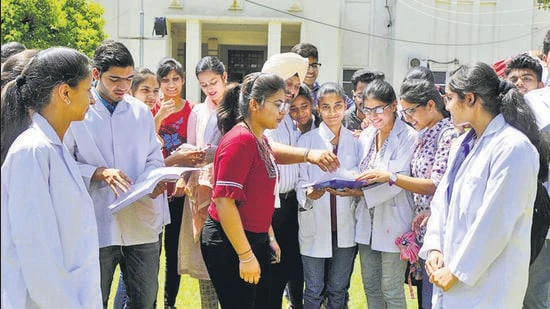MUMBAI: The state government plans to allow private universities to run medical colleges, with chief minister Devendra Fadnavis directing the departments of medical education and higher and technical education to prepare a proposal to this effect.
At present, private universities in Maharashtra cannot grant medical degrees. This is the sole prerogative of the government-run Maharashtra University of Health Sciences (MUHS) and deemed universities.
The move to bring private universities into this ambit is aimed at providing quality medical education within the state, thereby discouraging students from opting to study overseas.
At a high-power meeting attended by the vice-chancellors of all public universities in the state, among others, Fadnavis clarified on Wednesday that only private universities holding ‘A’ grade accreditation from the National Assessment and Accreditation Council (NAAC) would be eligible to set up medical colleges.
For the proposal to go through, the state would have to amend the Maharashtra Private Universities Act, 2023. The amendment bill is expected to be presented during the upcoming winter session of the state legislature. If all goes to plan, Maharashtra would join nine other states, where private universities have been allowed to run medical colleges.
The proposal comes with strict conditions. Only private universities that comply with norms laid down by the National Medical Commission will be eligible. They must also have a fully functional hospital attached to the medical college.
The meeting on Wednesday discussed other key issues relating to higher education. It saw the approval of 359 new locations in the state for setting up colleges, which are expected to begin functioning from the academic year 2026-27.
Fadnavis also launched the online New College Permission System (NCPS), designed to simplify the application process for institutions seeking approvals for new colleges. Institutions can submit applications directly through a dedicated website on the higher and technical education department portal.
Fadnavis also discussed the need to introduce reforms for social work colleges in the state. The existing system would be reviewed by a committee, which would be given three months to submit a plan to grant permanent, unaided recognition to new social work colleges.
The state higher education department also reviewed the performance of universities in the National Institutional Ranking Framework (NIRF). Officials noted that several universities had dropped in the rankings compared to the previous year. Vice-chancellors expressed concern over the acute shortage of teaching staff, with nearly 15,000 vacancies across colleges and universities in Maharashtra.
Minister for higher and technical education Chandrakant Patil urged all vice-chancellors to collaborate and address staffing gaps. He assured that the pending recruitment drive would resume after the appointment of a new governor. In the meantime, he said, universities and colleges can appoint contractual faculty members instead of relying on teachers hired on a clock-hour basis.
